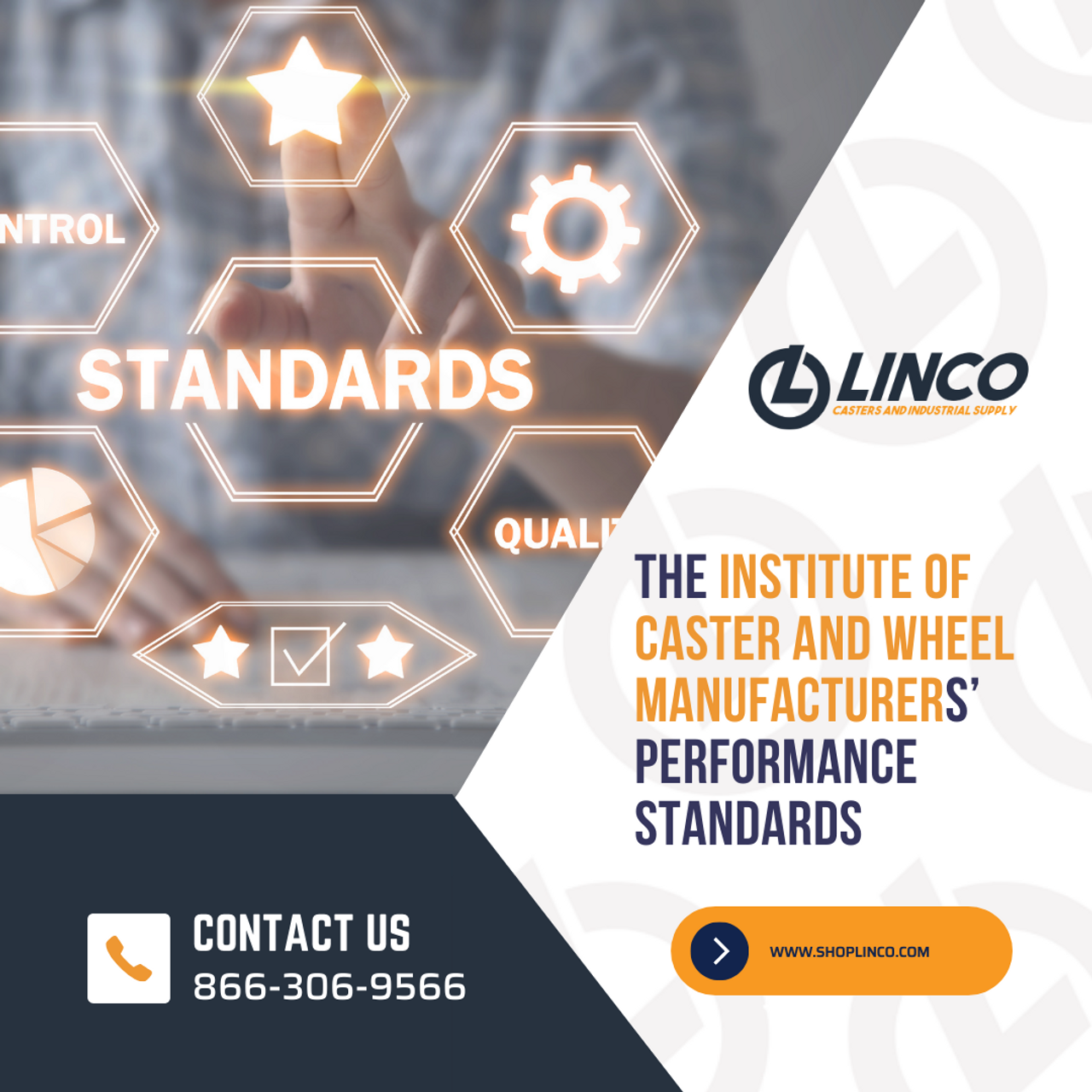Casters and wheels are indispensable in the world of industrial equipment and material handling. They allow you to effortlessly move heavy loads, making it easy to transport goods from one place to another. However, not all casters and wheels are created equal. To ensure high-quality products that meet industry standards, manufacturers adhere to the guidelines set by organizations such as The Institute of Caster and Wheel Manufacturers (ICWM). Read on to know more about these standards and their importance.
Understanding Performance Standards
Performance standards are a set of criteria and benchmarks that manufacturers must meet to ensure the reliability, durability, and safety of their casters and wheels. These standards are developed by industry experts and serve as a blueprint to ensure that the products perform optimally under various conditions. Manufacturers must comply with these standards, and proper compliance reflects their commitment to quality and customer satisfaction.
What Goes Into the Performance Standards?
The performance standards set by the ICWM cover various aspects of caster and wheel design and manufacturing.
Load Capacity
The performance standards specify the weight-bearing capacity that casters and wheels must handle under different circumstances. Whether it’s used in a bustling warehouse handling heavy pallets or a manufacturing plant transporting large equipment, adequate load capacity ensures that the products can bear the intended loads without compromising performance or safety.
Manufacturers conduct rigorous testing to determine the maximum weight a caster or wheel can safely carry, providing users with reliable and efficient material handling solutions.
Durability and Endurance
To withstand the challenges of harsh conditions and prolonged usage, the performance standards mandate durability and endurance tests. These tests simulate real-world scenarios, assessing how well the casters and wheels hold up under continuous movement and rough surface navigation. They also subject the products to extreme temperatures, humidity, and moisture exposure.
By evaluating the casters and wheels’ ability to endure these conditions without premature failure, manufacturers ensure that their products meet the demands of demanding work environments.
Traction and Rolling Resistance
Smooth movement and excellent traction are essential for efficient material handling operations. The performance standards lay down specific requirements for traction and rolling resistance to ensure that casters and wheels can navigate different surfaces safely and effectively.
By moving smoothly across concrete floors, climbing over small obstacles, and handling uneven terrain, traction and rolling resistance tests verify the performance of these components. Meeting these standards guarantees that the casters and wheels can handle various terrains with ease, promoting efficient and productive material handling processes.
Swivel and Wheel Lock Quality
Maneuverability and safety are high priorities in industrial settings, and caster swivels and wheel locks play a pivotal role in achieving these goals.
The swivel caster test subjects the caster to various turning maneuvers to assess its ability to swivel effortlessly without binding or resistance. Similarly, wheel testing evaluates the lock’s effectiveness in securing the caster and preventing unintentional movement. By meeting these standards, manufacturers ensure safe and agile material handling operations, reducing the risk of accidents and injuries.
Impact and Shock Resistance
Industrial environments are unpredictable, and casters and wheels can be subjected to sudden impacts and shocks. These incidents can occur due to collisions with obstacles or uneven surfaces. To guarantee their ability to withstand such events without damage or deformation, manufacturers conduct impact and shock tests according to the ICWM standards.
By passing these tests, manufacturers demonstrate the robustness of their casters and wheels, providing customers with reliable and durable equipment for their material handling needs.
Chemical Resistance
Certain industries involve exposure to various chemicals during material handling processes. To avoid degradation and damage, casters and wheels must exhibit chemical resistance. Manufacturers must verify that their products do not deteriorate, corrode, or experience adverse effects when exposed to different chemicals.
This ensures that customers receive durable and reliable casters and wheels that can withstand the specific challenges of modern industrial environments.
Noise and Vibration
Excessive noise and vibration can be discouraging and may indicate potential issues with the casters and wheels. In industrial settings, where silence and focus are essential, noise and vibration can disrupt the working environment and lead to unnecessary distractions.
To ensure smooth and quiet operation, the performance standards require noise and vibration testing. Manufacturers assess the level of noise and vibrations generated during movement and aim to minimize them as much as possible.
LINCO’s Caster Testing Service
For manufacturers looking to ensure that their casters and wheels meet the stringent performance standards set by the ICWM, LINCO offers a comprehensive caster testing service. With state-of-the-art testing equipment and a team of experienced professionals, we can help assess the performance and quality of your products.
Final Thoughts
Adhering to performance standards set by organizations like the ICWM is crucial for caster and wheel manufacturers to ensure the quality, reliability, and safety of their products. If you want to ensure compliance with these standards, LINCO is the place to go. Visit our site for more information.

